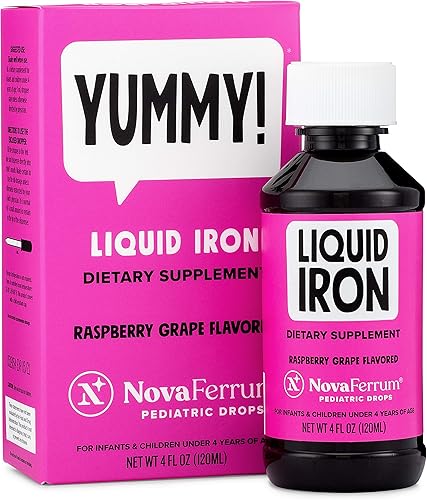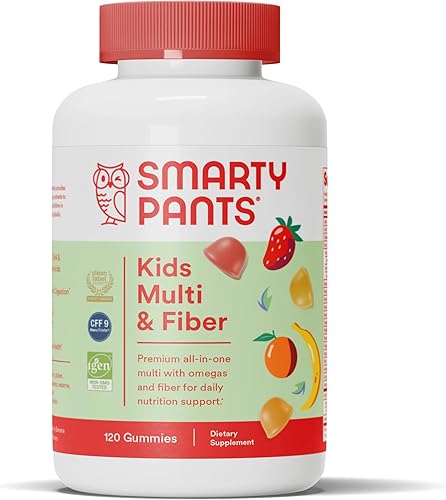Ensuring optimal nutrition for your baby is paramount for their growth and development. As parents, we are entrusted with the responsibility of providing the necessary nutrients that pave the way for healthy growth milestones. In this comprehensive guide, we delve into the crucial vitamins, minerals, and nutrients essential for a baby’s flourishing development.
Importance of Essential Nutrients
Calcium: Building Strong Bones and Teeth
Calcium plays a pivotal role in the development of strong bones and teeth in babies. During the early stages of life, when bones are rapidly growing and solidifying, calcium becomes even more crucial. This mineral acts as a building block for the skeletal system, ensuring that bones grow properly and attain the necessary strength.
In infancy and childhood, the body is actively absorbing calcium to support bone growth and density. Insufficient calcium intake during these critical periods can lead to weakened bones, delays in growth, or even conditions like rickets, characterized by soft and fragile bones.
Calcium is typically obtained through dietary sources such as breast milk or formula during infancy. As babies transition to solid foods, incorporating calcium-rich foods like dairy products (milk, cheese, yogurt) or fortified alternatives (fortified cereals, plant-based milk) becomes essential to meet their growing calcium needs.
Apart from bone health, calcium also contributes to dental development. Teeth rely on this mineral for their formation and strength. Adequate calcium intake during early childhood can help ensure the proper development of primary (baby) teeth, laying the foundation for healthy permanent teeth later on.
Here are some notable products related to calcium that aid in supporting a baby’s bone and teeth health:
1. Infant Formula: Opt for formula fortified with calcium to supplement a baby’s needs if they’re not exclusively breastfed. Brands like Similac Advance or Enfamil Premium Infant Formula offer added calcium for bone development.

Advance Infant Formula with Iron
2. Baby Cereals: Look for fortified baby cereals like Gerber Oatmeal or Earth’s Best Whole Grain Oatmeal Cereal, enriched with calcium to support bone growth when babies start on solid foods.

Baby Cereal Organic 1st Foods
3. Dairy Products: Consider products like organic whole milk (after the age of one), yogurt, and cheese. Brands like Stonyfield Organic Yogurt or Organic Valley offer calcium-rich dairy options suitable for babies.

Kids Strawberry Banana Lowfat Yogurt Pouches
4. Fortified Plant-Based Milk: For non-dairy alternatives, fortified plant-based milks such as almond milk, soy milk (make sure it’s fortified), or oat milk by brands like Silk or Califia Farms can provide a calcium boost.

Bananas, Dragon Fruit, Coconut Milk & Oats
5. Baby Snacks: Some baby snacks, like calcium-fortified teething biscuits or calcium-enriched puffs, can offer additional calcium while satisfying a baby’s need to explore new textures.

Snacks for Baby Arrowroot Biscuits
6. Supplements: Pediatrician-recommended calcium supplements for infants might be necessary if a baby has specific dietary restrictions or if their intake isn’t meeting the required

Super Earth Rainforest Animalz Calcium Magnesium And Vitamin D3 Chews
Iron: Vital for Cognitive Development
Iron is an elemental cornerstone crucial for cognitive development, especially in the early stages of life. Its significance lies in its role in facilitating the formation of hemoglobin and myoglobin, integral proteins responsible for the transportation and storage of oxygen throughout the body.
In the realm of cognitive development, iron stands as a linchpin. The brain demands a steady and ample oxygen supply to function optimally, and iron ensures this by aiding in the production of neurotransmitters and supporting neuronal development. It’s a vital component for the myelination of nerve fibers, which influences the speed and efficiency of neural communication.
For babies, whose brains are rapidly evolving and maturing, maintaining sufficient iron levels is paramount. Iron-fortified cereals, pureed meats, such as beef or poultry, and legumes like lentils or beans, present as prime sources of this essential mineral. These foods furnish the body with the necessary iron for the burgeoning cognitive processes during these formative years.
Insufficient iron intake during infancy can potentially lead to cognitive impairments, affecting learning abilities and overall brain function. Thus, ensuring an adequate and consistent supply of iron-rich foods is not merely beneficial but imperative for fostering healthy cognitive development in babies.
Notable Iron-Enriched Products:
1. Iron-Fortified Cereals: Brands like Kellogg’s or General Mills offer a variety of iron-fortified cereals specifically designed for infants and toddlers.

Whole Grain Oatmeal Cereal
2. Pureed Meats: Baby food options from brands such as Gerber or Beech-Nut often include pureed meats like chicken, beef, or turkey, which are excellent sources of iron for infants.

Foods Meat Variety, Chicken & Turkey
3. Iron Supplements: Pediatrician-recommended iron supplements for infants can be found in various forms, such as drops or liquid formulations.

Pediatric Drops Liquid Iron Supplement for Infants and Toddlers
4. Legumes and Beans: Brands offering canned or packaged beans and legumes like lentils, chickpeas, or black beans provide plant-based sources of iron suitable for babies.

Split Mung Beans Washed
5. Iron-Fortified Baby Foods: Companies specializing in baby food like Ella’s Kitchen or Plum Organics often offer iron-fortified purees or blends, ensuring adequate iron intake for little ones.

Organic Baby Food Meals
6. Iron-Rich Fruits and Vegetables: Certain fruits like dried apricots and vegetables like spinach or broccoli contain iron and can be introduced as part of a baby’s diet as they start on solid foods.

Organic Superfood Greens Fruits and Veggies Complex
Omega-3 Fatty Acids: Boosting Brain Development
Omega-3 fatty acids are essential nutrients crucial for fostering brain development, especially in infants and young children. Among these fatty acids, DHA (docosahexaenoic acid) holds particular importance in supporting cognitive growth. DHA contributes significantly to the formation of cell membranes in neurons, aiding in the development of robust neural pathways essential for optimal brain function. This fatty acid, abundant in the brain, plays a pivotal role in shaping brain structure and facilitating cognitive processes like learning and memory.
Moreover, Omega-3 fatty acids, including DHA and EPA (eicosapentaenoic acid), are associated with enhanced visual development, supporting the growth of the retina and improving visual acuity in babies.
Notable Omega-3 Fatty Acid Products:
1. Fatty Fish: Varieties like salmon, mackerel, sardines, and trout are rich sources of DHA and EPA. Brands offering canned or fresh options like Wild Planet, Vital Choice, or Trident provide access to quality fish products.

Canned Sockeye Salmon
2. Fish Oil Supplements: Specific fish oil supplements formulated for infants and children, such as Nordic Naturals Baby’s DHA or Carlson for Kids, offer concentrated Omega-3 fatty acids in easily consumable forms like drops or chewable capsules.

Kid’s Chewable DHA
3. Flaxseeds and Flaxseed Oil: Brands like Spectrum Essentials or Barlean’s offer flaxseed oil or ground flaxseeds, providing plant-based Omega-3 fatty acids suitable for incorporation into baby foods or smoothies.

Softgels Fish Oil Omega-3
4. Chia Seeds: Products like Nutiva Organic Chia Seeds or Navitas Organics Chia Seeds offer another plant-based source of Omega-3s, suitable for adding to baby-friendly recipes.

Dense Raw Black Chia Seeds
5. Baby Foods Fortified with Omega-3: Certain baby food brands like Happy Baby or Beech-Nut offer purees or snacks enriched with Omega-3 fatty acids to support brain development in infants.

Blends Apples, Purple Carrots & Guava with DHA and Choline
Vitamins: A Multifaceted Role in Growth
Vitamins play a pivotal role in the growth and development of infants and children, supporting various aspects of their health as they grow.
For infants, vitamin A is crucial for healthy vision and immune system development. It aids in the growth of healthy cells and tissues and supports the overall growth process. Adequate vitamin D is essential for infants as it helps in the absorption of calcium and phosphorus, vital for building strong bones and teeth. Ensuring a baby receives these vitamins, either through breast milk, formula, or supplements as recommended by a pediatrician, is crucial for their healthy development.
In early childhood, these vitamins continue to be vital. Vitamin C becomes important for collagen synthesis, which aids in wound healing and supports the development of healthy skin, tendons, and blood vessels. Additionally, it helps in boosting the immune system, which is particularly significant as children are often exposed to various illnesses.
Proper nutrition, including a variety of fruits, vegetables, fortified cereals, and dairy or non-dairy alternatives, is crucial to ensure children receive adequate vitamins. Parents should also consider supplements when necessary, especially if their child’s diet lacks certain nutrients. However, consulting a pediatrician before introducing supplements is advisable to ensure the child’s specific needs are met safely and effectively.
In essence, vitamins are essential for the growth and development of babies and children, supporting various bodily functions crucial for their overall health and well-being. Providing a balanced diet rich in essential nutrients and, when needed, supplementing appropriately contributes significantly to a child’s healthy growth and development.
Notable Products Related to Vitamins:
1. Multivitamins for Kids: Brands like SmartyPants, Nature’s Way, or Flintstones offer chewable multivitamins designed for children, providing a range of essential vitamins and minerals.

Daily Kids Multivitamin Gummy
2. Vitamin D Supplements: Specifically formulated Vitamin D drops for infants and children, such as Baby Ddrops or Carlson Super Daily D3, offer a convenient way to supplement Vitamin D intake.

Baby Vitamin D Drops
3. Vitamin C Gummies: Various brands like Vitafusion and Nordic Naturals offer Vitamin C gummies specifically for children, making it easier for them to consume this important nutrient.

Vitamin C Gummies for Immune Support
4. Fortified Foods: Many cereals, dairy products, and fruit juices are fortified with vitamins like A, D, and C, providing additional sources in a convenient form.

Organic Fruit & Oat Pouches with Brain-Supporting Nutrients
Proteins: Building Blocks of Growth
Proteins serve as the fundamental building blocks critical for growth and development in the human body. These complex molecules play multifaceted roles, beyond merely providing structural support. They are involved in various bodily functions, acting as enzymes, hormones, and antibodies while also being essential for the growth and repair of tissues.
During the developmental stages, especially in infancy and childhood, proteins are crucial for building and repairing tissues, muscles, and organs. They facilitate the formation of new cells, supporting the rapid growth and development that characterize these early years.
Amino acids, often termed the “building blocks of proteins,” are essential compounds that the body utilizes to create different types of proteins. There are twenty amino acids, nine of which are considered essential as the body cannot produce them on its own. Hence, obtaining these essential amino acids through diet is crucial, especially during growth phases.
Optimal protein intake is vital for infants, and it’s commonly met through breast milk or formula during the first months of life. As babies transition to solid foods, incorporating protein-rich sources like lean meats, poultry, fish, eggs, dairy products, legumes, and plant-based proteins becomes important for their continued growth and development.
Notable Products Related to Proteins:
1. Whey Protein Isolate: Brands like Optimum Nutrition’s Gold Standard Whey or Dymatize ISO100 offer whey protein isolate, known for its rapid absorption and high protein content, ideal for muscle recovery and growth.

Sports Nutrition
2. Casein Protein: Slow-digesting and suitable for prolonged protein release, products like MuscleMilk’s Genuine Protein Powder or Kaged Muscle Kasein provide sustained amino acid delivery, beneficial for overnight use or between meals.

Protein Powder Chocolate
3. Plant-Based Protein: Vega, Garden of Life, and Sunwarrior offer plant-based protein powders derived from sources like peas, hemp, or brown rice, catering to vegan or lactose-intolerant individuals seeking complete protein sources.

Creamy Vanilla Plant Based Protein Drink Mix
4. Collagen Protein: Vital Proteins and Sports Research offer collagen peptides, supporting joint health, skin elasticity, and hair strength. They’re easy to mix into beverages and often come unflavored.

Orgain Hydrolyzed Collagen Powder
5. Egg White Protein: NOW Sports and Jay Robb provide egg white protein powder, offering a complete protein source with minimal fat and carbs, suitable for those with dairy allergies.

Sports Nutrition Egg White Protein
6. Protein Bars: RXBAR, Quest Nutrition, and ONE Brands offer protein bars with various flavors and protein sources, providing convenient on-the-go protein-rich snacks.

Protein Snack Bars
7. Ready-to-Drink Shakes: Premier Protein, Muscle Milk, and Orgain produce pre-made protein shakes, offering convenience with high protein content and low sugar.

Immune Health For keto diet
Zinc: Enabling Proper Growth and Immunity
Zinc plays a pivotal role in enabling proper growth and bolstering the immune system. Its multifaceted functions contribute significantly to various aspects of our health.
Firstly, zinc is crucial for supporting cell division and growth. During infancy, childhood, and adolescence, when rapid growth occurs, this mineral is essential for the development of new cells and tissues. It aids in the processes that enable the body to grow properly and function optimally.
Moreover, zinc is a key player in maintaining a robust immune system. It supports the function of immune cells, helping the body fight off infections and illnesses. Zinc deficiency can compromise immune function, making individuals more susceptible to infections.
A balanced diet that includes zinc-rich foods is vital for ensuring adequate intake of this essential mineral. Foods such as lean meats (beef, pork, poultry), seafood (crab, lobster, shrimp), nuts (cashews, almonds, peanuts), seeds (pumpkin seeds, sesame seeds), and legumes (chickpeas, lentils) are excellent sources of zinc.
For infants and young children, ensuring they receive sufficient zinc through breast milk, formula, or appropriate foods as they transition to solid diets is critical for their growth and development. However, it’s important to note that excessive zinc intake can also have adverse effects, so consulting healthcare professionals or pediatricians for guidance on recommended daily allowances is advisable.
Here are some prominent products associated with zinc, a mineral crucial for enabling proper growth and supporting immunity:
- Zinc Supplements: Various brands offer zinc supplements in forms like zinc gluconate, zinc citrate, or zinc picolinate, catering to individuals aiming to boost their zinc intake to support immunity and overall health.
- Multivitamins: Many multivitamin supplements contain zinc among other essential vitamins and minerals. Brands like Centrum, One A Day, and Nature Made offer multivitamin formulations that include zinc for overall health support.
- Zinc Lozenges: Especially popular during cold and flu seasons, zinc lozenges are believed to support immune function. Brands like Cold-Eeze and Zicam offer zinc-based lozenges for immune support.
- Fortified Cereals: Some breakfast cereals are fortified with zinc, providing a convenient way to incorporate this mineral into daily diets. Look for brands like Kellogg’s or General Mills that fortify their cereals with zinc.
- Immune Support Drinks: Certain beverages, like wellness shots or immune-boosting drinks, contain zinc alongside other nutrients aimed at supporting the immune system. Brands such as Emergen-C or Airborne offer products fortified with zinc.
- Zinc-Containing Skincare Products: Zinc is known for its skin-soothing properties and is used in various skincare products like creams, ointments, and sunscreens. Brands like Neutrogena and CeraVe offer skincare products containing zinc for its beneficial effects on the skin.
- Zinc-Rich Foods: While not products per se, various foods like lean meats, shellfish, legumes, nuts, and seeds are rich natural sources of zinc and should be included in a balanced diet to support overall health.

Diaper Rash Cream for Baby
Choline: Vital for Brain Health
Choline, an essential nutrient, is crucial for maintaining optimal brain health and function. It plays a fundamental role in various neurological processes, particularly in the development and maintenance of the brain.
One of its primary functions is supporting the structure of cell membranes, aiding in signal transmission between cells. This contributes significantly to the brain’s overall communication and functioning. Moreover, choline serves as a precursor to acetylcholine, a neurotransmitter involved in memory, mood regulation, and muscle control.
During crucial stages of development, such as pregnancy and infancy, adequate choline intake is particularly vital. It plays a significant role in neural tube formation during early pregnancy, influencing the baby’s brain and spinal cord development. For infants and young children, choline remains crucial for continued brain growth and cognitive development.
Incorporating choline-rich foods into the diet helps ensure an adequate intake of this essential nutrient. Foods like eggs, liver, seafood, certain meats, and cruciferous vegetables such as broccoli and Brussels sprouts are excellent sources of choline.
Research suggests that maintaining adequate choline levels throughout life may support cognitive function and reduce the risk of certain neurological conditions associated with aging.
Considering its diverse roles in brain health, choline stands as a vital nutrient necessary for optimal brain development, cognitive function, and overall neurological well-being at every stage of life.
Here’s a list of notable products and foods associated with choline, an essential nutrient vital for brain health:
- Eggs: A significant source of choline, eggs provide this essential nutrient in a readily absorbable form. They’re a versatile food and can be easily incorporated into various dishes.
- Liver: Liver, especially from beef or chicken, is a rich source of choline. However, it’s essential to consume it in moderation due to its high vitamin A content.
- Seafood: Fish such as salmon, cod, and shrimp contain substantial amounts of choline, contributing to brain health and overall nutrition.
- Cruciferous Vegetables: Vegetables like broccoli, Brussels sprouts, and cauliflower are good plant-based sources of choline. They offer various health benefits alongside providing this essential nutrient.
- Choline Supplements: Several supplements offer choline in various forms like choline bitartrate or alpha-GPC, catering to individuals aiming to increase their choline intake. Always consult with a healthcare professional before starting any supplements.
- Choline-Enriched Foods: Certain food products are fortified with choline to enhance their nutritional content. These may include fortified cereals, energy bars, or beverages.
- Nutritional Yeast: Often used as a flavoring agent, nutritional yeast is a vegan-friendly source of choline and is sometimes fortified with additional nutrients.
- Choline-Containing Infant Formulas: Some infant formulas are fortified with choline to mimic the nutrient content found in breast milk, supporting brain development in babies.

Liquid DHA and Choline for Baby’s Brain and Eye Development During Pregnancy
Choosing the Right Products
When it comes to choosing products for your baby, especially those enriched with essential nutrients like vitamins, proteins, choline, zinc, and others, it’s vital to take certain steps.
Consultation with Pediatricians
Start by consulting pediatricians or healthcare professionals. They offer valuable guidance on the specific nutritional needs of your baby based on their age, health, and developmental stage. This guidance helps in choosing products enriched with the right nutrients suited for your baby.
Quality and Reputation of Brands
Opt for products from reputable and well-established brands. Look for brands known for producing high-quality, safe, and reliable baby products. Check for certifications and labels that indicate adherence to safety standards and quality control.
Nutrient-Rich Foods and Formulas
Consider a diverse range of nutrient-rich foods and formulas. Breast milk or appropriate formula remains crucial during infancy. Look for formulas fortified with essential nutrients such as vitamins, proteins, choline, zinc, and others, supporting your baby’s healthy growth.
Variety and Balance in Diet
Introduce a variety of solid foods as your baby transitions to solids. Include fruits, vegetables, lean meats, eggs, whole grains, and fortified cereals. This variety ensures your baby receives a wide range of essential nutrients vital for their development.
Safety Standards and Labels
Check product labels for safety certifications and indications of suitability for your baby’s age and developmental stage. Ensure that the products meet safety standards established by relevant authorities.
Read Reviews and Recommendations
Reading reviews and seeking recommendations from other parents or trusted sources can provide insights into the effectiveness, safety, and suitability of certain products.
Observation and Adaptation
Monitor your baby’s response to new products. Watch for any adverse reactions or allergies and adapt accordingly. If there are concerns or uncertainties, consult your pediatrician for further guidance.
By following these steps, you can make informed choices about products that prioritize your baby’s safety and nutritional needs. Consulting healthcare professionals and staying informed about safety standards are crucial elements in selecting the best products for your baby’s well-being.
Conclusion: Nurturing Healthy Growth
In conclusion, understanding and providing the essential nutrients vital for your baby’s growth is a cornerstone of responsible parenting. The incorporation of calcium, iron, omega-3 fatty acids, Vitamin D, and proteins through reliable products from esteemed brands outlined in this guide can significantly impact your baby’s overall development.



